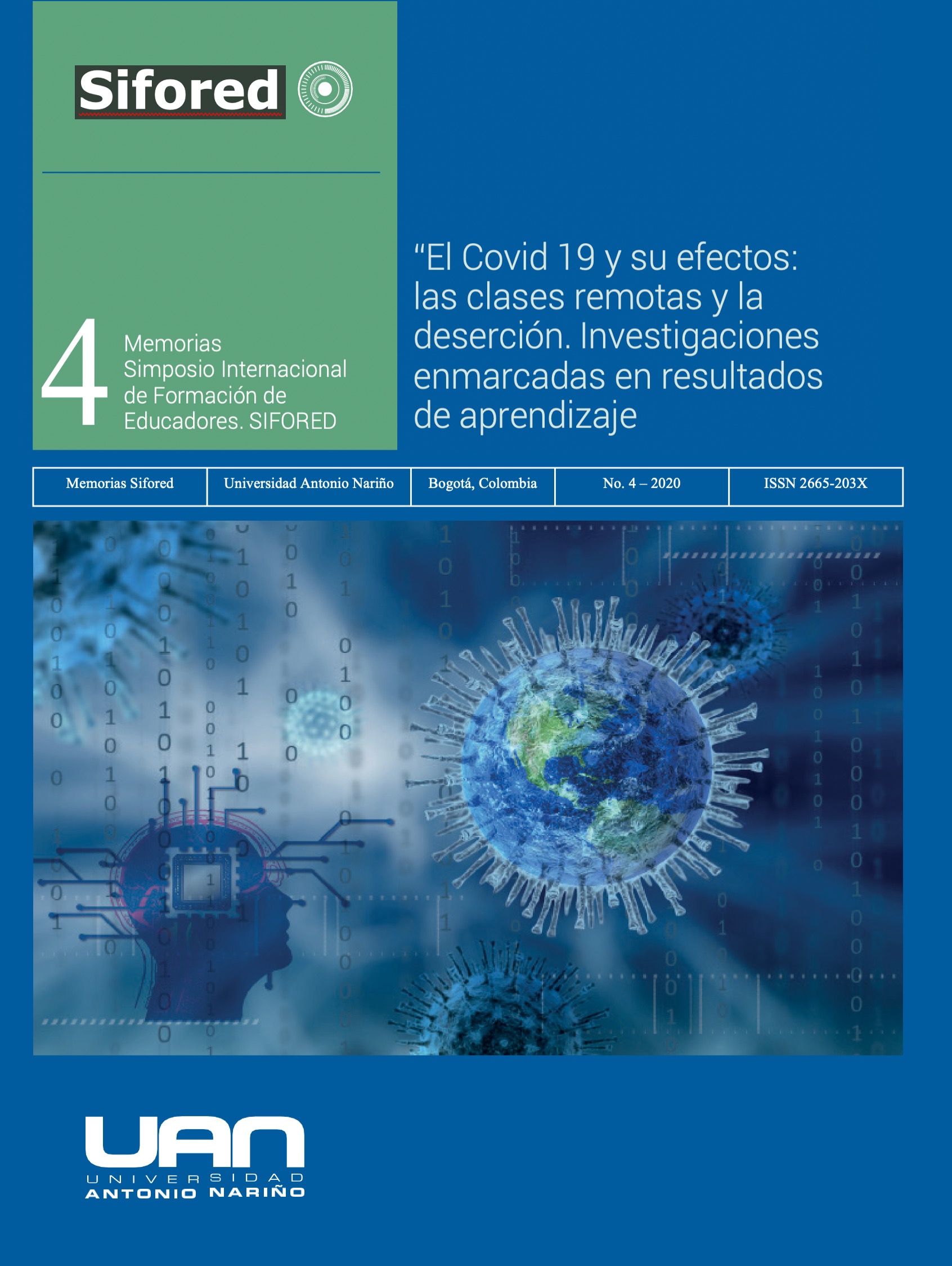Actitud, conocimiento y manejo de los recursos tic en entornos virtuales en contexto de COVID-19
Keywords:
Technological disruption, virtual environments, humanized education, ICT planningAbstract
Postmodern society is immersed in a global context of drastic and profound changes. Technological disruption has set a trend and this requires rethinking innovation, humanization and predictability. Distance education using virtual environments shows a very different scenario in which students were a year ago and it is necessary to offer more humanized responses to these new technological forms of human life. A transformation of the work systems and new individual and social behaviors in the daily life is observed, where two different dimensions for the human beings are distinguished: situated and virtual contexts. The dynamics of transculturation and the dependence on social networks, virtual environments and videoconference platforms propose new paradigms for human development. In this scenario, Information and Communication Technologies (ICT) cannot be seen only as a pedagogical resource but as a catalyst agent in knowledge management and competence development. This work promotes reflection on the attitudes, knowledge and management that students of Chilean pedagogy have towards ICTs in their university learning experience prior to the COVID-19 context. The results show a positive attitude towards the use of these technological resources. However, this context reveals deficiencies in equipment, connectivity and training in the pedagogical use of ICTs to manage knowledge and learning, which requires urgent planning and reorientation by authorities and educators.
Downloads
References
Cabero, J. El Aprendizaje Autorregulado Como Marco Teórico Para la Aplicación Educativa de las Comunidades Educativas y Virtuales y los Entornos Personales de Aprendizaje. Rev. Teoría Educ. Educ. Cult. Soc. Inf. 2013, 14, 133–156. Available online: http://revistas.usal.es/index.php/eks/article/view/10217/10626 (accessed on 12 November 2018).
Careaga, M.; Jiménez, L.; Molina, J.; Badilla, M. G.; Carrasco, J. L.; Díaz, L. (2020). “Profound technologies: Towards exploring the technological disruption and the challenges for a more humanized and inclusive education”. En M. Nazrul Islam (Ed.), “Information and Communication Technologies for Humanitarian Services”. ISBN-13: 978-1-78561-996-0
Cadavieco, J. F., & Sevillano, M. Á. P. (2011). Las Tecnologías de la información y la comunicación en la docencia universitaria. Estudio de casos en la Universidad Nacional Autónoma de México (UNAM). Educación XX1, 14 (2), 79-110. Recuperado de https://search-proquest-com.dti.sibucsc.cl/docview/1117541643?accountid=14619
Carrasco-Sáez, J.; Careaga, M.; Badilla-Quintana, M. (2019). Sociological Importance and Validation of a Questionnaire for the Sustainability of Personal Learning Environments (PLE) in 8th Grade Students of the Biobío Region in Chile. Sustainability.
Ruiz, A. B. M., Sánchez, F. A. G., & Pina, F. H. (2015). Cuestionario para el estudio de la actitud, el conocimiento y el uso de TIC (ACUTIC) en Educación Superior. Estudio de fiabilidad y validez. Revista interuniversitaria de formación del profesorado, (83), 75-89.
Downloads
Published
-
Abstract232
-
PDF (Español)134
How to Cite
Issue
Section
License

This work is licensed under a Creative Commons Attribution-NonCommercial-ShareAlike 4.0 International License.


 Portal de Ciencia Abierta
Portal de Ciencia Abierta